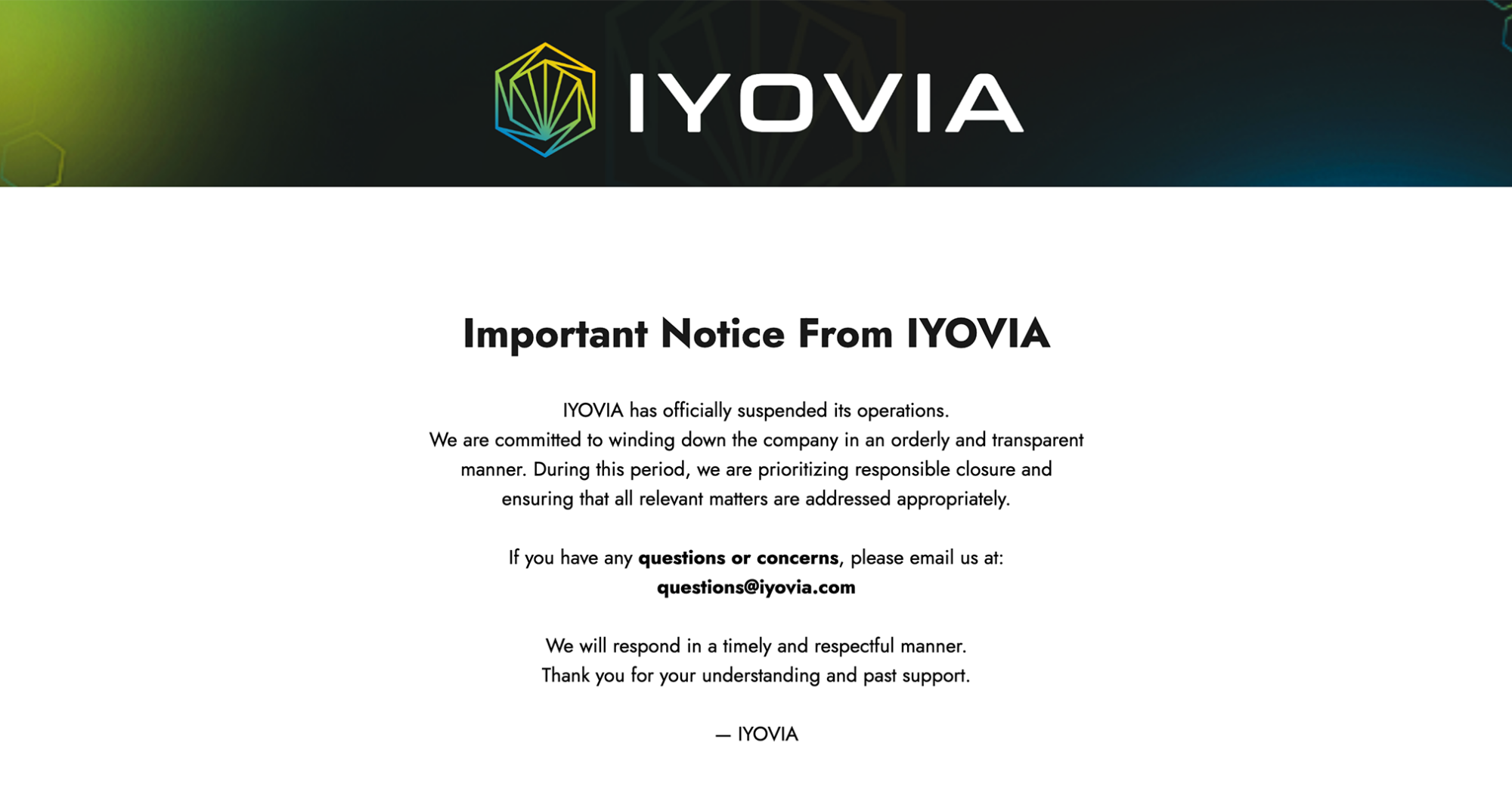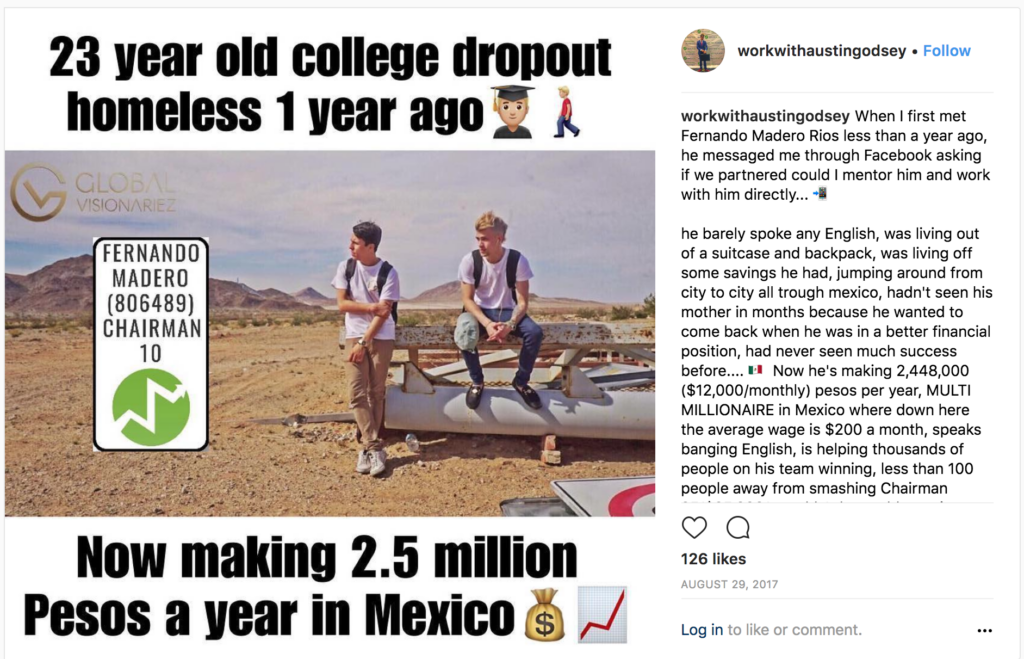
FTC Files for Injunction as IML Shuts Down
Agency worries MLM defendants are dissipating assets.
UPDATE 9/16/25: In recent weeks, there have been several developments in the FTC and Nevada’s case against IM Mastery Academy, which the government alleges operated “a wide-ranging investment training and business venture scam.” Since August, five of the 10 defendants have reached settlements resulting in monetary judgments totaling $118.5 million (of which $13 million will ultimately be paid): Alex Morton will pay $10 million ($76.2 million judgment); Brandon Boyd will pay $500,000 ($6.3 million judgment); and Jason Brown, Matthew Rosa and their company, Global Dynasty Network, will together pay $2.5 million ($36 million judgment). In addition, these five defendants are permanently prohibited from engaging in a variety of misleading conduct, including making earnings claims without the proper substantiation. And Morton in particular is permanently banned from taking part in any multilevel marketing of trading-training services. Meanwhile, regulators have obtained a preliminary injunction against the remaining five defendants, which include Christopher Terry and Isis Terry. Our original article follows.
—
On Thursday, the FTC and the state of Nevada filed a lawsuit against IM Mastery Academy, a financial education MLM that recently rebranded as IYOVIA for bilking more than $1.2 billion from consumers in “a wide-ranging investment training and business venture scam” that dates back to 2018. Originally launched as iMarketsLive 12 years ago, the company has been the subject of an ongoing TINA.org investigation.
According to the complaint, which refers to the company as IML, the MLM used false and baseless earnings claims to entice consumers to purchase financial training products costing as much as $400 a month and to join the MLM’s business opportunity. Often targeting young people through social media, IML claimed distributors could retire in their 20s, travel the world and make money in their sleep. The reality was quite the opposite, with most recruits earning no money or losing money, according to the FTC and Nevada Attorney General.
The lawsuit seeks a permanent injunction, monetary relief and other consumer relief against IML and nine other defendants:
The 71-page complaint is a scathing indictment of defendants’ actions, stating early on that:
Defendants profit handsomely from the deceptive earnings claims of their salespeople, which have generated more than $1.242 billion in worldwide sales since 2018. Instead of disciplining or terminating high-earning salespeople when confronted with evidence of the deceptive earnings claims, IML and IML CEO Christopher … Terry often reward them with lucrative payouts. Defendants IML, Alex Morton, Jason Brown, and Matthew … Rosa have even instructed IML’s salespeople on how to make those claims while escaping the detection of IML’s compliance program and law enforcement.
And the profits from this scheme appear to be astronomical. According to the lawsuit, Chris and Isis Terry have received at least $20 million, Rosa and Brown have pocketed more than $33 million combined, and Alex Morton has gotten more than $76 million from IML. According to the complaint, this money has been obtained by scamming “hundreds of thousands of consumers in the United States and worldwide. Defendants focus their marketing on young people, many of whom are Black and Latino. The scheme has disproportionately harmed young Black consumers.” As part of the evidence to substantiate these allegations, the complaint quotes Chris Terry informing Brown, “That’s the great thing about network [marketing] … They keep making new 18 year olds everyday.”
The complaint lays out 10 different counts against defendants, including a count for making false or unsubstantiated earnings claims regarding defendants’ trading training services, another for false earnings claims related to the business venture, a third for other earnings misrepresentations regarding defendants’ services, a count that defendants violated the Telemarketing Sales Rule by making deceptive telemarketing calls, a count against IML and the Terrys that they violated the Restore Online Shoppers’ Confidence Act (ROSCA), and five corresponding counts under Nevada’s Deceptive Trade Practices Act.
The lawsuit also details the lengths to which these defendants have gone to manipulate and deceive young consumers. According to the complaint, Brown “hired a third party to post fake positive reviews about IML under a pseudonym.” The complaint goes on:
[Brown] has directed IML’s compliance consultant to find ways to disable the social media accounts of individuals who have criticized IML’s practices online. And he has advised top salespeople at IML on how to post deceptive earnings claims online in ways that will evade law enforcement.
With respect to Morton, the complaint alleges:
[Morton] … makes deceptive earnings claims to lure consumers into the IML scheme… Morton is aware of deceptive earnings claims made by other salespeople and IML instructors. He has advised top salespeople on how to post deceptive earnings claims online in ways that will evade IML’s compliance program and law enforcement.
Rosa is alleged to have engaged in the same sorts of conduct as Morton. And perhaps most damning of all, the complaint makes clear that defendants are well aware that what they have been doing violates the law and that they simply refuse to stop engaging in deceptive practices. As the complaint highlights, Chris Terry wrote in a November 2021 group chat that included Brown, Morton and Rosa, “our risk is extremely high from these income claims…. I am sure if [the FTC] investigates us the chairman10’s and above will face legal issues. We do not want to swim in their waters as we will all lose… Should FTC come down on us. [sic] Expect a $20-30m in fines.”
And according to the complaint, Brown, Rosa and others echoed Terry’s concerns, with Rosa suggesting they make a video containing deceptive earnings claims private so it can only be seen by individuals with a link to it. That way, he said, TINA.org “can’t find what they can’t find.”
Which brings us to…
In the summer of 2018, TINA.org warned consumers about IML after an initial investigation revealed that the company, Chris Terry and top distributors like Morton were making deceptive earnings claims to market the business opportunity. At the time of this investigation, IML Chief Operating Officer Frank Gomez stated the company “absolutely agree[d] that unrealistic income claims, as well as any income claims on social media is not good,” that all IML distributors would “be trained with ‘Do’s and Don’ts’ in regard to any social media posts,” and that Morton and Chris Terry in particular “ha[d] made errors in comments or posts from the past, ha[d] been notified to eliminate any communication that is considered any type of income claims.”

But a year after this statement was made, TINA.org readily gathered more than 200 new deceptive income claims. As a result, in December 2019, TINA.org filed a complaint with the MLM industry’s self-regulatory group known as the Direct Selling Self-Regulatory Council. In its letter to the council TINA.org wrote:
iMarketsLive … and its distributors have claimed – and continue to claim – that participants make five-figures per month and millions of dollars per year, travel the world, and buy luxury vehicles and other expensive items, among other things. Such claims completely contradict iMarketsLive’s 2018 Income Disclosure Statement, which indicates that the vast majority of the company’s distributors – 95 percent – averaged an income of less than $300 in 2018, and that is without accounting for expenses, including, but not limited to, any monthly costs required to earn commissions.
Nine months later, in September 2020, the DSSRC issued a case decision acknowledging the company’s efforts to promptly remove the earnings claims at issue, counseled the company with regard to the marketing of deceptive earnings claims and closed its inquiry.
Unfortunately, the DSSRC’s action appears to have had little impact on IML. Since that time, TINA.org has continued to collect dozens of inappropriate income claims being made by the company and its distributors. And the FTC complaint also makes clear that the company’s CEO was well aware that deceptive earnings claims continued to be published on social media after the DSSRC decision – Chris Terry is quoted as stating in a June 2021 message to top IML distributors:
I’ve been going through a lot of people’s accounts, and I’m mortified by the lifestyle claims that we have. We’re going to end up getting shut down by the feds. I promise you. This is horrible what’s going on out there. It’s not a good thing … I’m looking at myself, I’m looking as a lot of top leaders’ Instagrams. The jets, the watches, the diamonds, the cars … we got to [sic] adhere to certain laws that are in place. And if we don’t then there’s consequences. The consequences are that we will be shut down.
IML is no stranger to run-ins with regulatory authorities. Since at least 2017, the company has been critically examined by governmental entities around the world. According to the FTC complaint, “[n]o fewer than 21 international government agencies have issued warnings about the scheme, and Canadian law enforcement has taken legal action against IML.”
Over the years TINA.org has alerted consumers to financial actions against IML by a number of foreign countries, including Colombia, France, Spain, Belgium, the U.K., Canada and Peru, each of which have warned investors and the public that the company is not authorized to operate in their countries. In 2022, Poland issued a consumer warning notifying the public that it had charged IML with operating a “pyramid-type promotional system.”
As the complaint points out, IML has also faced regulatory scrutiny at home by the Commodity Futures Trading Commission, which in 2018 reached a settlement with the company over allegations it acted as a unregistered commodity trading advisor.
Up until a few months ago, Alex Morton was IML’s top earner. Morton got his start and rose to fame in the MLM industry as a young distributor for Vemma Nutrition Company, which reached a $238 million settlement with the FTC over allegations that it was a pyramid scheme in 2016. In fact, Morton was one of the FTC’s key witnesses against Vemma at the preliminary injunction hearing as the FTC showed a video of him making inappropriate income claims. (Here’s one of TINA.org’s favorites from Morton’s Vemma days.)
Just before the FTC sued Vemma, Morton left the company and moved to another MLM that sold skin cream products, Jeunesse Global, where he continued to make inappropriate income claims.
In July 2016, a class-action lawsuit was filed against Jeunesse naming Morton as a defendant and co-conspirator and alleging the company was a pyramid scheme. Morton signed up with IML the very next month.
Morton used his personal brand to promote IML with particular attention paid to young people. On his personal Instagram page, Morton regularly posted videos promoting his lifestyle with the promise that hard work in network marketing will yield the same results for others. In this video from 2018, he explained the IML business opportunity to a room full of young adults with a focus on recruiting them as distributors – the same business practice that ultimately brought Vemma to the attention of the FTC.
In another video from 2018, Morton pledged to “make anyone that want to” be one, a millionaire in IML:
I told these two dudes yesterday at Applebee’s, I said … I am going to act as if I personally brought you in and your account is my account. Until these guys are both making at least $25,000 a month, which is gonna happen very quickly, in the next 60 to 90 days, I am going to be here for you 24/7, 365, and that’s my commitment to all of you on this call right now … my goal is to have as many people as possible [making] $10,000 a month and that’s what we’re doing … anyone that wants to I’m going to make sure they become millionaires in iMarketsLive.
But not long after it rebranded from IM Mastery Academy to IYOVIA, after eight years with the company Alex Morton jumped ship and moved to yet another MLM – JIFU, an Idaho company launched in 2019 that sells health, travel and educational services. Not surprisingly, in March 2025, the DSSRC initiated an inquiry into the use of – wait for it – deceptive earnings claims by JIFU and its distributors. (Rosa and Boyd have also recently left IML.)
However, this time round it is clear that Morton is not going to be able to escape the attention of the FTC when it comes to his marketing of IML.
According to the complaint, Nevada and the FTC are seeking “preliminary injunctive and ancillary relief as may be necessary to avert the likelihood of consumer injury during the pendency of this action and to preserve the possibility of effective final relief, including but not limited to, a preliminary injunction and the appointment of a monitor over Corporate Defendants.” What does this mean? Sometime in the not-too-distant future, after many, many pages of legal briefings are filed, there will be a hearing before a judge in Nevada to determine whether or not IML’s wings should be clipped and, if so, how short pending the trial of this case.
But perhaps more importantly, with this current action against IML, the FTC has once again put the MLM industry on notice that they must stop using unsubstantiated income claims to market the business opportunity.
For more information regarding TINA.org’s investigation of IML.
Agency worries MLM defendants are dissipating assets.
Different name, same game.
TINA.org investigation finds 98% of MLMs using misleading income claims.


